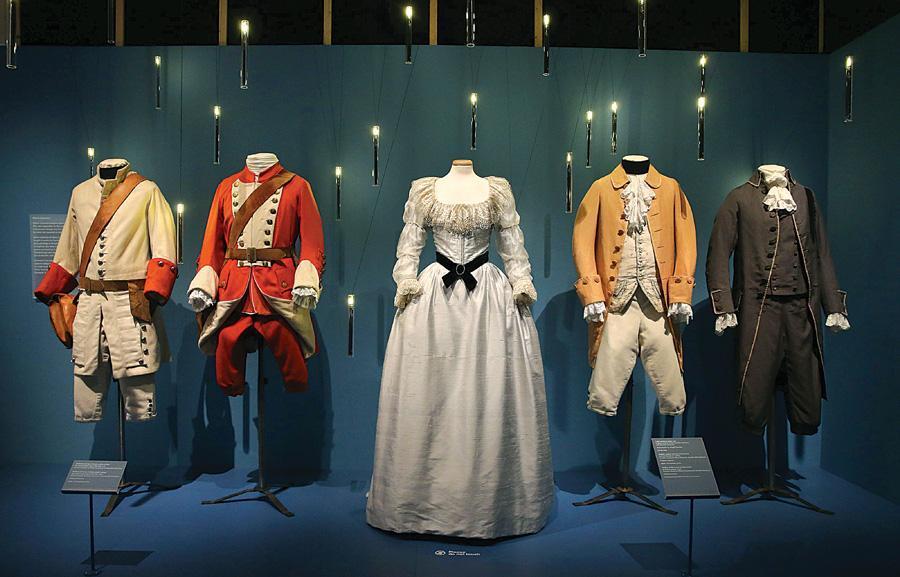
Iconic props from "The Shining" and "2001: A Space Odyssey" that detail the single-minded perfectionism of U.S. filmmaker Stanley Kubrick are among the highlights of a new London show dedicated to the late artist.
Visitors can discover Kubrick's universe and special relationship with Britain through some 700 objects, film clips and interviews, which are arranged according to the 13 films he made over a 50-year career.
The show coincides with the 20th anniversary of Kubrick's death, and is somewhat of a homecoming for the director, who moved to Britain in the early 1960s, shooting classics "Lolita" (1962), 2001: "The Space Odyssey" (1968), "Dr. Strangelove" (1964) and "Full Metal Jacket" (1987).
The exhibition's most famous items include Jack Nicholson's axe from The Shining, the disturbing costumes from "A Clockwork Orange" (1971), the "Born to Kill" helmet worn by character "Joker" in Full Metal Jacket and Tom Cruise's Venetian cape and mask from "Eyes Wide Shut" (1999).
Other exhibits detail his obsessive attention to detail, including a photograph of the snow-covered hotel in Oregon that would eventually be used for the outside shots of The Shining.
Items detail how Kubrick recreated Vietnamese city Hue in a deserted gas plant in Beckton, south east London, through dynamiting and importing 200 palm trees from Spain and 100,000 tropical plastic plants from Hong Kong.
The legendary director died on March 7, 1999 in his mansion in Childwickbury, north of London.
In addition to the exhibition, a hunt through the archives of “A Clockwork Orange” author Anthony Burgess have unearthed a never-before-seen unfinished "sequel" to the 1962 dystopian novel.
The manuscript was written by the British author, who died in 1993, in response to the moral panic surrounding Kubrick's ultra-violent 1971 adaptation of the novel, which was blamed for copycat crimes.
"The Clockwork Condition" describes 1970s society in terms of humans being reduced to cogs in a machine, "no longer much like a natural growth, not humanly organic."